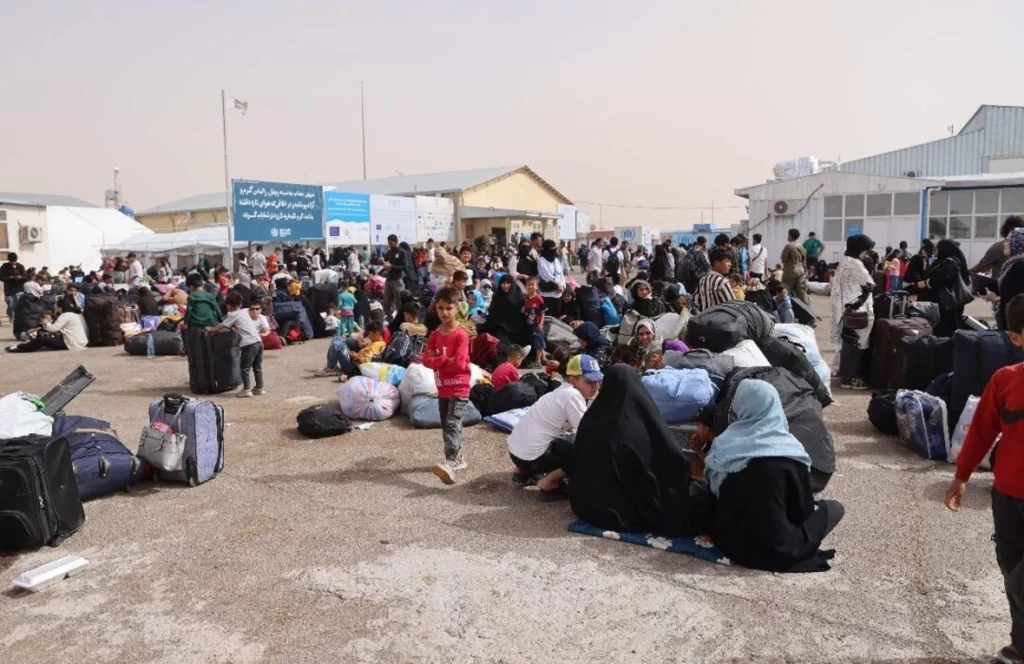By Hijratullah Kakar Kashmir Khan
KABUL (Pajhwok): The United Nations High Commissioner for Refugees (UNHCR) has issued an urgent appeal to the international support to assist more than 1.4 million Afghans returning or forcibly repatriated to Afghanistan so far this year— including over one million from Iran alone.
In a report released on Friday, the UN agency highlighted a dramatic spike in daily returnees from Iran after June 13, with the highest number recorded on July 1, when over 43,000 people returned. This is a stark increase from January to June average of 5,000 arrivals per day. From Pakistan, a rapid increase was seen in numbers in April, with nearly 150,000 people returning that month.
It said: “Our teams are at the borders, receiving and assisting streams of exhausted, hungry, and scared people every day. Staff and structures are absolutely inundated.
“UNHCR has deployed additional staff, and we are providing essential relief items, hot meals and emergency financial assistance to help meet immediate needs. But amid funding constraints, and given the scale and pace of returns, we will not be able to sustain support for more than a few weeks.”
The report added these returns were part of a complex protection crisis. UNHCR is concerned that returns are happening in extremely difficult conditions, and that many are not voluntary. Many people who returned said that they felt compelled to leave, as they saw fellow Afghans being deported. Returnees who arrived in Afghanistan in recent months have been sharing concerning stories of increased restrictions, harassment and discrimination.
The report called it part of a broader, worrying regional trend. Refugee-hosting countries have issued return orders with deadlines for Afghans to depart, or face deportation. Since these announcements, the situation for Afghans in bordering countries has deteriorated quickly.
Immense challenges lie ahead for returnees, from accessing documentation, housing healthcare and education, to rebuilding their lives in a country they do not know. It is particularly worrying as returns are highly concentrated in just a few areas. Returns mark the start of a difficult journey in a country facing multiple, overlapping crises, and struggling to recover after four decades of instability. For women and girls in particular, life in Afghanistan brings extreme restrictions.
UNHCR urges countries in the region to ensure that returns to Afghanistan are voluntary, safe, and dignified. Forcing or pressuring Afghans to return risks further instability in the region, and onward movement towards Europe.
UNHCR calls on the international community to urgently and substantially increase funding – to meet both critical needs at the border upon arrival, and provide longer-term assistance to help returnees settle in Afghanistan. UNHCR’s response in Afghanistan this year is only funded at 28 per cent of a required $216 million.
The global community must not turn away from the people of Afghanistan at this pivotal time and should stand with them to restore hope, and give them a fighting chance of recovery, stability and prosperity.
Earlier this month, the International Organisation for Migration (IOM) revealed that more than 256,000 Afghan migrants had returned from Iran during June alone.
IOM also reported that a lack of funding has severely affected its ability, and that of its partners, to deliver essential aid services.
